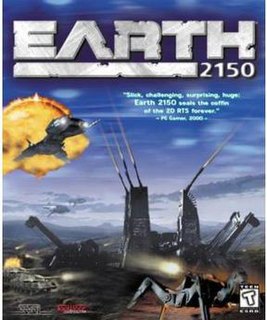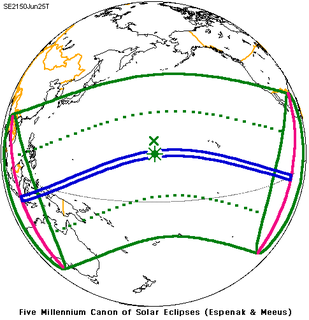2150 may refer to:
- AD 2150, a year in the 22nd century
- 2150 BC, a year in the 22nd century BC
- 2150 AD , a novel by Thea Alexander
- Daleks' Invasion Earth 2150 A.D. , a 1966 British science fiction film
- Earth 2150 , a 2000 real-time strategy video game



